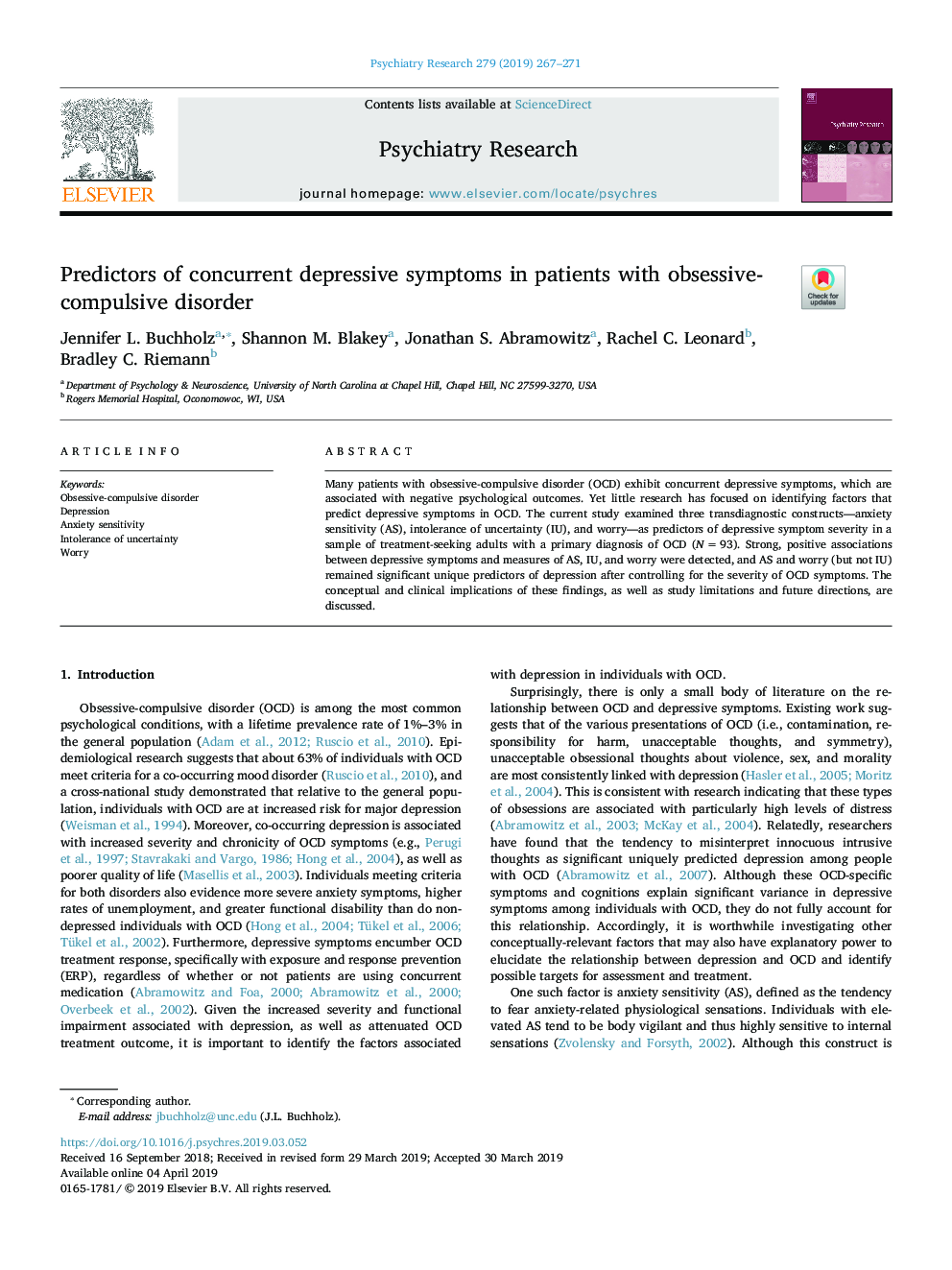| Article ID | Journal | Published Year | Pages | File Type |
|---|---|---|---|---|
| 13425844 | Psychiatry Research | 2019 | 5 Pages |
Abstract
Many patients with obsessive-compulsive disorder (OCD) exhibit concurrent depressive symptoms, which are associated with negative psychological outcomes. Yet little research has focused on identifying factors that predict depressive symptoms in OCD. The current study examined three transdiagnostic constructs-anxiety sensitivity (AS), intolerance of uncertainty (IU), and worry-as predictors of depressive symptom severity in a sample of treatment-seeking adults with a primary diagnosis of OCD (Nâ¯=â¯93). Strong, positive associations between depressive symptoms and measures of AS, IU, and worry were detected, and AS and worry (but not IU) remained significant unique predictors of depression after controlling for the severity of OCD symptoms. The conceptual and clinical implications of these findings, as well as study limitations and future directions, are discussed.
Related Topics
Life Sciences
Neuroscience
Biological Psychiatry
Authors
Jennifer L. Buchholz, Shannon M. Blakey, Jonathan S. Abramowitz, Rachel C. Leonard, Bradley C. Riemann,
